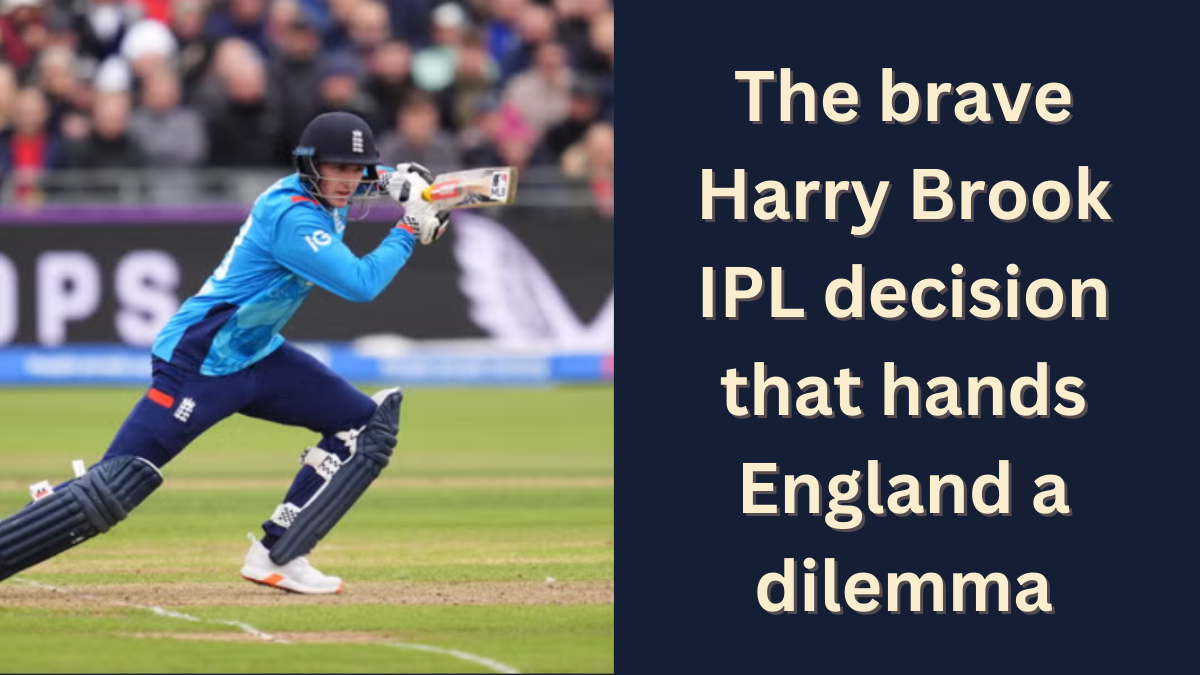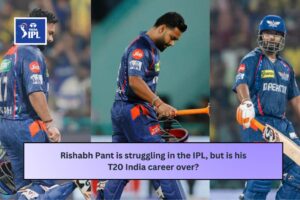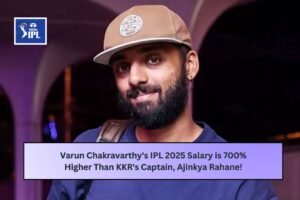Dynamic English batsman Harry Brook has lately made news by skipping the 2025 Indian Premier League IPL decision in order to give his international obligations with England top priority. This audacious action has generated debates regarding how it may affect Brook’s career as well as the England cricket squad.
The cricket community is hotly debating Harry Brook’s choice to drop out of the 2025 Indian Premier League (IPL). Renowned for his aggressive stroke play and adaptability over forms, the gifted English batsman had signed a deal with the Delhi Capitals for ₹6.25 crore (about £590,000). Brook withdrew from the competition, though, claiming his need to concentrate on his international obligations with England and to control his workload following a demanding time of cricket.
Although this audacious action highlights Brook’s commitment to England cricket, it has had a major result: the Board of Control for Cricket in India (BCCI) may issue a two-year IPL ban. Players who withdraw from an auction following a selection under IPL rules without a valid injury or pre-approved justification could be excluded from next seasons.
For England, Brook’s choice offers two-edged blade. One may argue that his absence from the IPL guarantees he stays fresh for England’s pivotal events including Test matches, white-ball series, and possible leadership positions. Missing IPL experience, on the other side, means he loses important exposure to high-pressure T20 cricket, which could affect his growth in franchise leagues and big ICC events.
IPL decision Brook’s choice to withdraw
Following the IPL auction, Brook was bought by the Delhi Capitals for a substantial ₹6.25 crore (about £590,000). But Brook declared his intention to pull out of the event citing the need to “recharge following the busiest period” of his career and be ready for England’s next games. He said he was sorry for the Delhi Capitals and their supporters, but he underlined his dedication to England’s international programme.

Effects of the Drawout
Players who withdraw from the IPL following their selection in the auction risk a two-year suspension from competing under the Board of Control for Cricket in India’s (BCCI) rules. Brook is thus currently not qualified to participate in the IPL until at least 2027.
Actions of the Cricketing Community
Over Brook’s choice and the latter ban, the cricketing fraternity has been split. Former England colleague Moeen Ali backed the BCCI’s position, saying, “It’s not cruel. I also agree with it. Ali said that late withdrawals may throw off team planning and that the regulation discourages such behavior.
Michael Clarke, a former captain of Australia, too attacked Brook’s choice, stressing the need of observing the rules of the competition and fulfilling obligations.
Some have, on the other hand, defended Brook. Former England batsman Mark Butcher supported Brook’s decision since he understood the rigorous international calendar and the requirement of players properly managing their workloads.
Implications for English Cricket

For the England cricket squad, Brook’s absence offers chances as well as difficulties:
Leadership Prospects: Brook’s choice to give national responsibilities top priority has strengthened his prospects for the leadership post as Jos Buttler, England’s white-ball captain, resigned following an early Champions Trophy elimination. The England and Wales Cricket Board (ECB) would see his dedication positively when choosing the next captain.
Brook’s withdrawal from the IPL means he will be available for England’s preparatory camps and bilateral series, therefore guaranteeing improved cohesiveness and readiness ahead of big events.
Player Welfare: This event highlights the more general problem with player workload control. To combine franchise obligations and international responsibilities, the ECB might have to work closer with players, therefore guaranteeing both player welfare and team performance.
Broader Implications for International Cricket
Brook’s situation highlights the ongoing tension between lucrative T20 leagues and international cricket:
- Scheduling Conflicts: As franchise tournaments expand, overlaps with international fixtures become more frequent, forcing players to make tough choices.
- Financial Considerations: While T20 leagues offer substantial financial rewards, national boards must find ways to incentivize players to prioritize international cricket, possibly through improved contracts or scheduling accommodations.
- Player Autonomy: Brook’s decision reflects a growing trend of players asserting control over their careers, choosing personal and national interests over franchise opportunities.
Conclusion
Harry Brook’s absence from the 2025 IPL season is evidence of his commitment to England cricket, but it has major psychological and financial consequences. Even if he is banned from the two-year IPL, his dedication might open doors for national team leadership prospects. This story acts as a microcosm of the difficulties modern cricket players have in juggling franchise appeal with international obligations, which drives supporters to look for harmonic answers for the future of the game.



